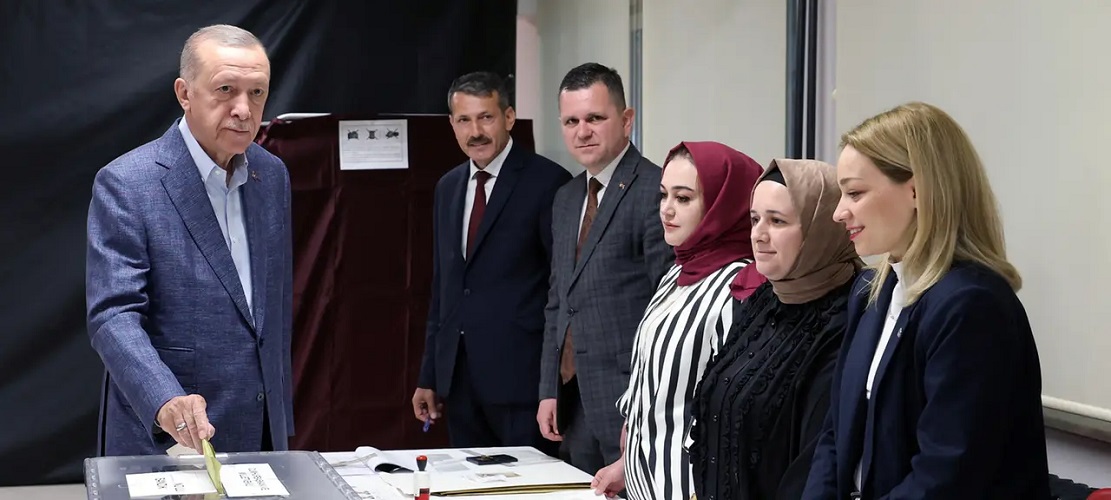Based on initial, unverified partial results from the state news agency Anadolu, incumbent Recep Tayyip Erdogan is leading the Turkish presidential election. However, only half of the votes have been counted thus far – and opposition parties have accused Anadolu of manipulation. Anadolu reports that Erdogan is leading with approximately 52% of the vote, while Kemal Kilicdaroglu of the CHP follows in second place with about 42%. Kilicdaroglu stated that “we are ahead” on Twitter during the vote count, while Ekrem Imamoglu, a colleague and mayor, claimed that Kilicdaroglu would win “as president” that evening. Faik Öztrak, CHP spokesman, criticised Anadolu for “manipulation”.
Kilicdaroglu was previously ahead of Erdogan in pre-election polls. A second round of voting will take place on 28 May if neither candidate wins a majority. The turnout in Turkey is traditionally high, and long queues formed outside polling stations. More than 64 million people are eligible to vote, including 1.5 million Turkish citizens living in Germany.
Kristian Brakel, the Istanbul director of the Heinrich Boll Foundation, said on Tagesschau24 that the turnout among German Turks was “higher than ever before”, and added that German Turks that voted tended to support the AKP. Around 192,000 ballot boxes were set up in Turkey, with hundreds of thousands of government and opposition observers deployed. The election commission said the vote was progressing without incident; however, videos on social media upped allegations of vote-rigging, with one video showing a stamp appearing to be placed repeatedly for Erdogan’s AKP party.
The pro-Kurdish opposition party, HDP, also confirmed media reports that observers from its sister party, the YSP, had been attacked in Mardin in southeast Turkey. The dispute arose after observers refused entry to more than one family member in the voting booth. Brakel stated that such incidents occurred during previous elections, mostly in the southeast of the country, but that most voters are generally able to vote “relatively freely” on election day.

